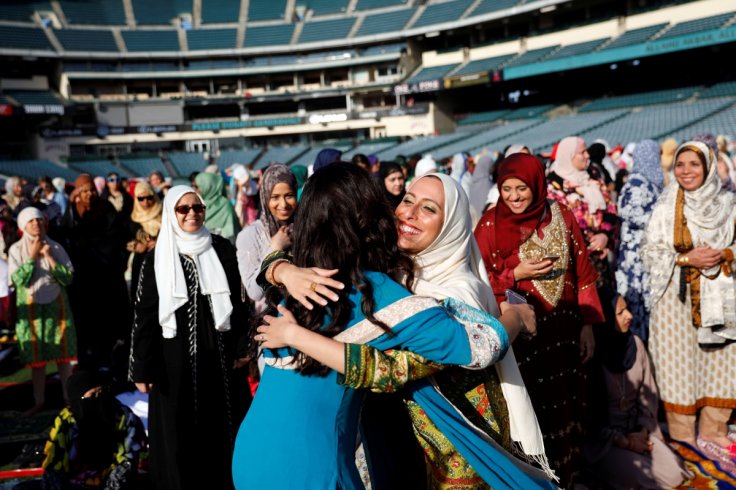Saudi Arabia hit a new high for daily coronavirus cases after the daily cases tally in the country exceeded the 2,000 mark for the first time on Thursday, May 14.
The kingdom's Ministry of Health has reported 2,039 new cases of infection and 10 new deaths on May 14, bringing the total number of infections to 46,869 and death toll to 283.
Cases increasing due to Ramadan gatherings

Since Mid-April the kingdom's daily case count has been on the rise, recording upwards of 1,000 cases per day, and the sudden spike in infected cases can be attributed to social gatherings during the current holy month of Ramadan, according to Saudi health officials.
The health officials reveal that cases of infection of the killer COVID-19 disease among Saudi children have shot up by as much as 125 percent during Ramadan, and a "dangerous" 100 percent rise in infections among its women over the same festival period.
These disturbing trends seem to have prompted Saudi authorities to release fresh warnings for the country's residents to avoid social gatherings during Ramadan and adhere to the precautionary preventive measures, in place, that are aimed at limiting the spread of the virus and stopping a second deadly wave of infections from happening.
"The number of reported cases for children has gone up to 125 percent, and there's been a 100 percent increase for females as well, which proves that social gatherings are dangerous," said the Saudi Ministry of Health spokesman Dr. Mohammed Al-Abd Al-Aly. He added that Saudi Arabia's R0 (pronounced R-naught) infection rating was getting dangerously close to one.
What is R0 rating?
The R0 is the virus's basic reproductive number and an epidemiological metric used to describe the contagiousness of the infectious virus. If a country's R0 rating is above one, each case among the population would infect at least one other person on average and the diseases are likely to keep spreading exponentially, resulting in an outbreak. If the R0 is less than one, a group of infected persons is less likely to spread the virus and the disease would shrink and eventually die out.
The official warned that if people neglected the social distancing norms and ignored safety regulations the number of COVID-19 cases could spiral out of control. "What is the point of curfew?," Al-Aly said pointing at the upcoming Eid curfews in Saudi Arabia which are aimed at curbing the social gathering of people during the Eid-al-Fitr festival.
"Why is the government implementing all these preventive measures and steps? Is it all to cheat the system and create opportunities to dispel what is meant to keep us healthy? Harming ourselves and society? Shouldn't we instead abide and be very careful to follow the regulations to save ourselves and our loved ones?", he questioned.
"It is our responsibility as individuals to save each other. The point is not for a day or two to pass where you follow preventive measures. The point is to follow through until the pandemic is a thing of the past."
24-hours Eid curfews in Saudi Arabia
Saudi Arabia had at the beginning of Ramadan, eased lockdowns and allowed shops and factories to reopen, except in hotpots such Mecca, citing the social nature of the holy month, and the need to resume at least part of the economic cycle of the country, since Ramadan shopping would provide some respite to the economy.
However, officials warned that easing the lockdowns should not be taken as a license to ignore the social distancing measures and other precautions aimed at containing the COVID-19 pandemic in the country. Saudi Arabia Ministry of Interior announced earlier this week that the kingdom will re-impose round-the-clock curfews across the country during the five-day Eid holiday from May 23 to May 27, in a bid to limit Ramadan gatherings.
Meanwhile, Saudi Arabia suspended the year-round Umrah pilgrimage earlier in March, over fears of the virus spreading in Islam's holiest cities Mecca and Medina. Saudi authorities are yet to announce whether the annual Hajj pilgrimage, which is scheduled for late-July, will take place this year. However, they have urged Muslims around the world to delay their preparations.
The Hajj is said to be Saudi Arabia's second-biggest revenue generator after oil. The holy pilgrimage attracts some 2.5 million faithful Muslims from across the world who converge in the holy cities of Mecca and Medina. If Saudi cancels the Hajj this year, it will be a major impact on its dwindling economy which has already been doubly impacted by the pandemic lockdowns and slumping oil prices.









